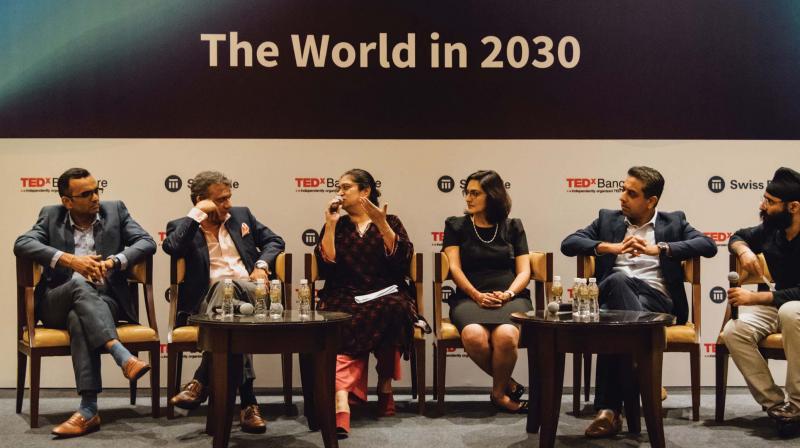The world in 2030 debunk’d!

The sixth edition of TEDx gathered few of the city’s most dynamic speakers to give an insight on what the world would be like in 2030. With an eclectic panel of speakers this event managed to expand the ambit of our knowledge. The intuitive gathering saw several jaws drop as many important aspects were discussed.
Sartaj Anand who has been the curator of TEDx in Bengaluru for the past six years has a progressive vision. He says, “The city is now fragile in terms of the environment. However, any decision we make now is sure to impact the environment, education system, hunger rates, employment rates, and many more in 2030 worlwide.”
According to the speakers we are currently in a phase called a mini-revolution. Points like abolition of hierarchy and avoiding gender inequality in the corporate sector sure did manage to raise eye brows.
Puja Marwaha, Chief Executive in an NGO, stamped a firm mark that education is every child’s right and must be offered quality education. She said, “The change is in progress, with reference to the hunger rate India is now in the 102nd place as opposed to 95th in 2018. Thus, the focus now must be on developing resources.
There are several issues we need to tackle, like the reach of anganwadi must expand, basic amenities like electricity must be top-notch in government schools and a lot more. All these actions and initiatives need advanced resources to empower and educate children who will be the face of the nation.”
With quality education in the rural sector more number of students will confidently migrate to the urban sector and contribute to the growing economy. A few points related to the corporate sector were also discussed. The panelists suggested that empoyees must be aware of the credibility of the company that they wish to be part of. This is possible by assessing the risk involved, the scope for diversity of thoughts and other factors.
Aditi Puri, a county manager in a software company was rooting for a gender-equal world in 2030. She opines, “Evidently seen in numbers, India has exhibited several cases of bias in gender-pay scale. This must be eradicated by the next decade. Women must stand up for themselves and demand the pay they deserve. Women must create their own destiny.”
She adds, “Organisations must also be empathetic towards women employees and be supportive. Initiatives related to empowering a woman must be conducted and every woman employee must participate in it. Financial decisions should be part of women’s decision as well. In my opinion world by 2030 will be more collective and collaborative. ”

